Showing 361–372 of 1187 results

It is a wide-ranging survey of the north Indian tradition of classical music during the post-Independence period. The book is divided into six parts, which, based on the authors vast experiences, make complex musicological concepts accessible to non-academic readers.
Hindustani Music: A tradition in transition is a wide-ranging survey of the North Indian tradition of classical music during the post-independence period. Explicitly, this book addresses music lovers of above-average familiarity with Hindustani music, and their curiosity about its inner workings. It is, however, also a valuable reference for scholars and other writers on music. The book is based on the author’s long years of training as a musician, vast experience as an analyst of music, and an observer of the cultural environment. The book is divided into six parts. Part I articulates an Indian perspective on important societal, cultural, economic and technological drivers of Hindustani music. Part II discusses issues pertaining to presentation formats, and the structural and melodic aspects of Hindustani music. Part III deals with the notion of raga-ness, and the world of ragas. Part IV presents comprehensive backgrounders on the four major genres of vocal music Dhrupad, Khayal, Thumree, and Tappa. Part V features detailed fact-sheets on eight major melodic instruments of the Hindustani tradition Rudra Veena, Sitar, Surbahar, Sarod, Sarangi, Shehnai, Santoor, and the Indian classical (Hawaiian) guitar. Part VI presents a glossary of words in italics, a list of suggested readings, and an index. The book makes complex musicological concepts accessible to non-academic readers, and contributes significantly to widening the understanding of contemporary trends in Hindustani music. Written by an author of impeccable credentials as a musician, researcher, and author, this book is a very significant addition to the body of authoritative writing on 20th century Hindustani music.
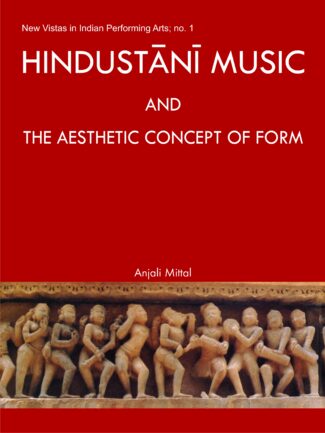
It studies the concept of form in the context of art, specifically Hindustani music. It investigates the underlying philosophical aesthetics and some aesthetical concepts and analyses the basic forms of raga and tala.
With its roots in the Samaveda (which treats it as a divine art), music in India has a long, splendid tradition. Over the centuries, it has absorbed fresh influences and experimented with new forms to finally evolve into two meticulously codified classical systems: Hindustani and Carnatic. In todays growing library of writings on Hindustani music, Anjali Mittals research is yet another valuable addition adopting, as it does, a viewpoint which has been neglected so far, namely, the viewpoint of contemporary western aesthetics. It is for the first time that this monograph examines the concept of form in Hindustani classical music. In this context, analytic attention has been focussed on some select compositions in dhruvapada, dhamar, tarana, vilambit and drut khyal genres of Hindustani classical vocal music. A wide variety of drut tanas has also been analysed in terms of notation and linear diagrams. Such diagrams, in fact, distinguish the present volume. Analysis of some rhythm-cycles and rhythmic patterns is another feature of this book. Thoroughly documented and written in a jargon-free language, the study includes a contextual discussion of aesthetics, artistic expression, aesthetic predicates and, above all, the concept of artistic form. The work may be expected to interest all those who want an analytic understanding of what form (or bandisha) means in the region of Hindustani classical vocal music.

A panoramic view of Hindustani art music, for educated readers with some familiarity in it, with an informed perspective covering major genres of this musical stream, instruments in vogue, with a brief history, by an acclaimed author and musician.
Stating that Hindustani music should be rightly termed Art music and not classical music, the book begins by discussing the features of Art music and presents an approach to appreciating Hindustani music. It provides a detailed understanding of the components of the raga experience in Hindustani music, including their time theory and the role of Gharanas of the musical tradition.
It deals with genres of raga-based vocal music which have been performed over the last five centuries: Dhrupad, which has its moorings in devotional music; Khayal vocalism shaped by Sufi influences; the thumree, which originated as an accompaniment to the Kathak dance; and the tappa, adapted from the songs of camel drivers in the north-west frontier. It takes up the use of instruments in Hindustani music, especially the Rudra Veena, Sitar, Surbahar, Sarod, Santoor, the Shehnai, Pakhawaj, the Hawaiian Guitar and many others, giving an account of their origin, performing styles and lineages relating to them.
Throughout, the emphasis is on contemporary trends in Hindustani music and its prospects in the future. It mentions the significant practitioners of Hindustani music, both vocal and instrumental.
The volume will interest lovers of Indian music and also scholars who want to have a greater understanding of its traditions, its contemporary appeal and trends in practice.

A panoramic view of Hindustani art music, for educated readers with some familiarity in it, with an informed perspective covering major genres of this musical stream, instruments in vogue, with a brief history, by an acclaimed author and musician.
Stating that Hindustani music should be rightly termed Art music and not classical music, the book begins by discussing the features of Art music and presents an approach to appreciating Hindustani music. It provides a detailed understanding of the components of the raga experience in Hindustani music, including their time theory and the role of Gharanas of the musical tradition.
It deals with genres of raga-based vocal music which have been performed over the last five centuries: Dhrupad, which has its moorings in devotional music; Khayal vocalism shaped by Sufi influences; the thumree, which originated as an accompaniment to the Kathak dance; and the tappa, adapted from the songs of camel drivers in the north-west frontier. It takes up the use of instruments in Hindustani music, especially the Rudra Veena, Sitar, Surbahar, Sarod, Santoor, the Shehnai, Pakhawaj, the Hawaiian Guitar and many others, giving an account of their origin, performing styles and lineages relating to them.
Throughout, the emphasis is on contemporary trends in Hindustani music and its prospects in the future. It mentions the significant practitioners of Hindustani music, both vocal and instrumental.
The volume will interest lovers of Indian music and also scholars who want to have a greater understanding of its traditions, its contemporary appeal and trends in practice.
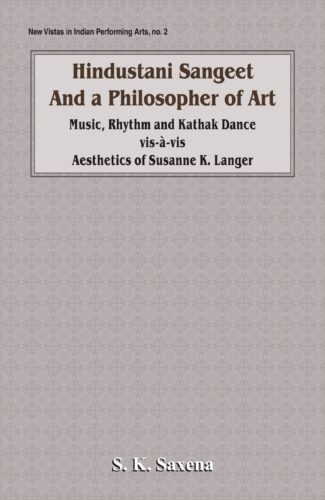
The book seeks to weigh some basic facts and concepts of Hindustani Sangeet (music, rhythm and Kathak dance) against the art theories of Susanne K. Langer, an eminent aesthetician of the recent past, incorporating numerous illustrative references to Hindustani sangeet.
The book is decidedly the very first of its kind. It seeks to weigh some basic facts and concepts of Hindustani sangeet (music, rhythm, and Kathak dance) against the art theories of Susanne K. Langer, an eminent aesthetician of the recent past; but nowhere without meticulous attention to the text of her writings. The expression theory of art has for long dominated the history of aesthetics. At the hands of Langer, however, the theory takes a new turn. She conceives of art not as a direct self-expression of the artist’s immediate affective state, but as a symbolic expression of his knowledge of what she terms variously as felt life, sentience, or forms of feeling. Drawing freely upon examples from the region of Hindustani sangeet, the present book accepts Langer’s protest against the popular view of artistic expression, but contends that there is a good deal in our music and dance which has nothing to do with feeling, and is admired simply because of its sweetness, clarity, shapeliness, and accordance with grammatical norms. In the chapter on music, while discussing Langer’s emphasis on commanding form in a total performance, the author proposes a quite new definition of raga which seeks to integrate the various points in its traditional characterizations. The third chapter too, which deals with Langer’s view of rhythm, is not merely explanatory, but ventures to propose a fresh and fairly defensible definition of rhythm. The closing chapter, devoted to dance, not only essays to meet some key objections to Langer’s writing on this art, but clarifies some atypical language that she uses in this context: apparition of vital powers; the dynamic image; virtual realities; and the created, superhuman dance-personality. But perhaps the two most striking features of the book are: first, a lucid exposition of the essentials of Langer’s aesthetics in the opening chapter; and, second, abounding illustrative references to Hindustani sangeet.

This book looks at Hindustani Sangeet that is, music, rhythm, and (Kathak) dance explicitly in relation to philosophy and philosophers of art. The other key features of this volume are a quite original (aesthetic) way of reflecting on Kathak dance, and a painstaking discussion of how exactly our music may be said to be spiritual.
There are three major ways of looking at Hindustani sangeet. An easy-to-follow discussion of its basic concepts is one. A truthful and sympathetic, yet not merely laudatory, account of the life and art of some of its masterly exponents is another. Both these approaches have been fairly common so far. The third way, which has not yet received the attention it deserves, tries to dwell upon Hindustani music, rhythm, and (Kathak) dance explicitly in relation to philosophy and philosophers of art. It is from this point of view that the present book should be welcome. It does not, however, overlook the first two approaches. Besides quite a few essays that explore the aesthetical aspects of Hindustani music, the book takes a renovative look at Kathak dance, and engages the reader in a discussion of how far our music can be regarded as spiritual. These and some other key features should make this book acceptable to both rasikas and musicologists.
The region of Orissa, from the point of view of studies in historical geography, has always remained a challenging area, not least owing to its vast and complicated history, varied geography and intriguing sources. Though the historical geography of this region has been considered for analysis in the past, it has only been featured as a chapter or in a section as part of a larger whole. Thus, this work is perhaps the first attempt to present a comprehensive research study of the historical geography of Orissa.
The author, guided by long research experience, culls material from all available sources — literary, epigraphic, etc. — to subject the theme to a systematic analysis that leaves not a facet of the subject unexplored. He describes and delves into the ancient, medieval and modern periods of historical growth to underline the historico-geographical significance of various kingdoms and places of importance that emerged, flourished and disintegrated at different times — as Kalinga; South Koshala; Odri, Utkala or Toshala; Trikalinga; and the many Mandala states. He studies the physical features of the area, the mountain system of the Orissa state and its rivers, with a view to showing how they have shaped its history. The transport and communication routes in the region since ancient times are retraced to reveal the region’s strong cultural and economic foundations among other things.
This book, from first to last, unfolds a wealth of interesting and useful information. Complete with an exhaustive bibliography, index and maps of Orissa, the book can immensely aid further research works on the subject.
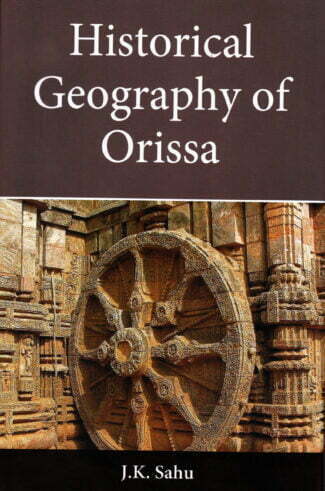
This work presents a study of the historical geography of Orissa. It uses literary and other sources to delve into the ancient, medieval and modern periods of Orissas growth and underline the historico-geographical significance of various kingdoms.
The region of Orissa, from the point of view of studies in historical geography, has always remained a challenging area, not least owing to its vast and complicated history, varied geography and intriguing sources. Though the historical geography of this region has been considered for analysis in the past, it has only been featured as a chapter or in a section as part of a larger whole. Thus, this work is perhaps the first attempt to present a comprehensive research study of the historical geography of Orissa. The author, guided by long research experience, culls material from all available sources literary, epigraphic, etc. to subject the theme to a systematic analysis that leaves not a facet of the subject unexplored. He describes and delves into the ancient, medieval and modern periods of historical growth to underline the historico-geographical significance of various kingdoms and places of importance that emerged, flourished and disintegrated at different times as Kalinga; South Koshala; Odri, Utkala or Toshala; Trikalinga; and the many Mandala states. He studies the physical features of the area, the mountain system of the Orissa state and its rivers, with a view to showing how they have shaped its history. The transport and communication routes in the region since ancient times are retraced to reveal the regions strong cultural and economic foundations among other things. This book, from first to last, unfolds a wealth of interesting and useful information. Complete with an exhaustive bibliography, index and maps of Orissa, the book can immensely aid further research works on the subject.
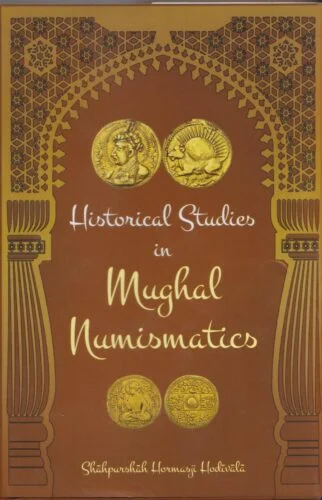
This memoir deals with the varied aspects of Mughal numismatics, be it the problem associated with Mughal coinage, Akbar’s monetary system or his religious and economic policies, providing liberal education in the history of Mughal period.
This memoir contains twenty-four scholarly articles that are remarkable in many respects. First, the author’s extremely accurate knowledge of the Persian historians of India and that of the European travellers has enabled him to bring together a series of studies into this volume, which is an exhaustive list of all references bearing upon Mughal coinage. Second, it addresses all the problems related to Mughal coinage thereby putting to rest half of the controversies that have engaged numismatists during the past a half century. Third, it sheds light on Akbar’s monetary system and religious outlook, while providing liberal education in the history of Mughal period. The historian and the student of economics should find stores of valuable material in this memoir.
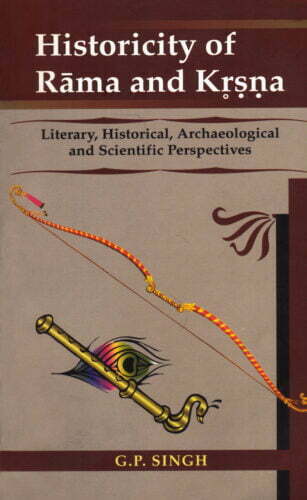
This monograph is a research-based disquisition on the historicity of Rama and Krishna. Their historicity has been proved on the combined testimony of literature, history, archaeology and science. The work is largely based on original sources, deals with all relevant aspects of the subject and provides new insights into the history of India of the epic age.
This monograph is a research-based disquisition on the historicity of Rama and Krishna. Their historicity has been proved on the combined testimony of literature, history, archaeology and science. The work is largely based on original sources. It deals with all relevant aspects of the subject. It provides new insights into the history of India of the epic age. The author has brought to light many new facts relating to the subject. They will enlighten the inquisitive readers.The work is of immense value not only for the historians and archaeologists but also for those who are genuinely interested to know truth about the subject.
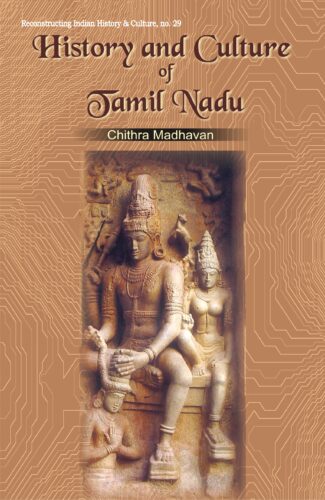
A comprehensive work on chaste Sanskrit inscriptions of ancient Tamil Nadu, under Pallavas, Pandavas, Coëas and their vassals; focussing on the then prevalent socio-economic, literary, religio-cultural and administrative paradigms. A valuable contribution to the field of epigraphy and history of Tamil Nadu.
Inscriptions are the most authentic and vital source for reconstructing the history of India. Epigraphs were composed in Sanskrit in various parts of India and the ancient Tamil country was no exception to this practice. Among the thousands of epigraphs found all over Tamil Nadu, a large number are composed in chaste Sanskrit and these as well as the Sanskrit portions of the bi-lingual copper-plate records serve as an important source of data about the conditions which existed in the ancient Tamil country. These Sanskrit inscriptions are also excellent pieces of prose and poetry and reveal the high standard which this language had attained in the ancient past in the Tamil country. This is a comprehensive and interesting work dealing with the Sanskrit inscriptions of ancient Tamil Nadu belonging to the period of the Pallavas, Pandyas and Colas and their vassals. It focuses attention on aspects of civil and military administration, social and economic life, education, literature and also the religious and cultural conditions of those ages. These inscriptions serve to highlight the cultural richness which Tamil Nadu enjoyed specially under the Pallavas, Pandyas and Colas. This book is a valuable contribution to the field of epigraphy and to the history of Tamil Nadu.

A comprehensive work on chaste Sanskrit inscriptions of ancient Tamil Nadu, under Pallavas, Pandavas, Coëas and their vassals; focussing on the then prevalent socio-economic, literary, religio-cultural and administrative paradigms. A valuable contribution to the field of epigraphy and history of Tamil Nadu.
Inscriptions are the most authentic and vital source for reconstructing the history of India. Epigraphs were composed in Sanskrit in various parts of India and the ancient Tamil country was no exception to this practice. Among the thousands of epigraphs found all over Tamil Nadu, a large number are composed in chaste Sanskrit and these as well as the Sanskrit portions of the bi-lingual copper-plate records serve as an important source of data about the conditions which existed in the ancient Tamil country. These Sanskrit inscriptions are also excellent pieces of prose and poetry and reveal the high standard which this language had attained in the ancient past in the Tamil country. This is a comprehensive and interesting work dealing with the Sanskrit inscriptions of ancient Tamil Nadu belonging to the period of the Pallavas, Pandyas and Colas and their vassals. It focuses attention on aspects of civil and military administration, social and economic life, education, literature and also the religious and cultural conditions of those ages. These inscriptions serve to highlight the cultural richness which Tamil Nadu enjoyed specially under the Pallavas, Pandyas and Colas. This book is a valuable contribution to the field of epigraphy and to the history of Tamil Nadu.
| There are no products |